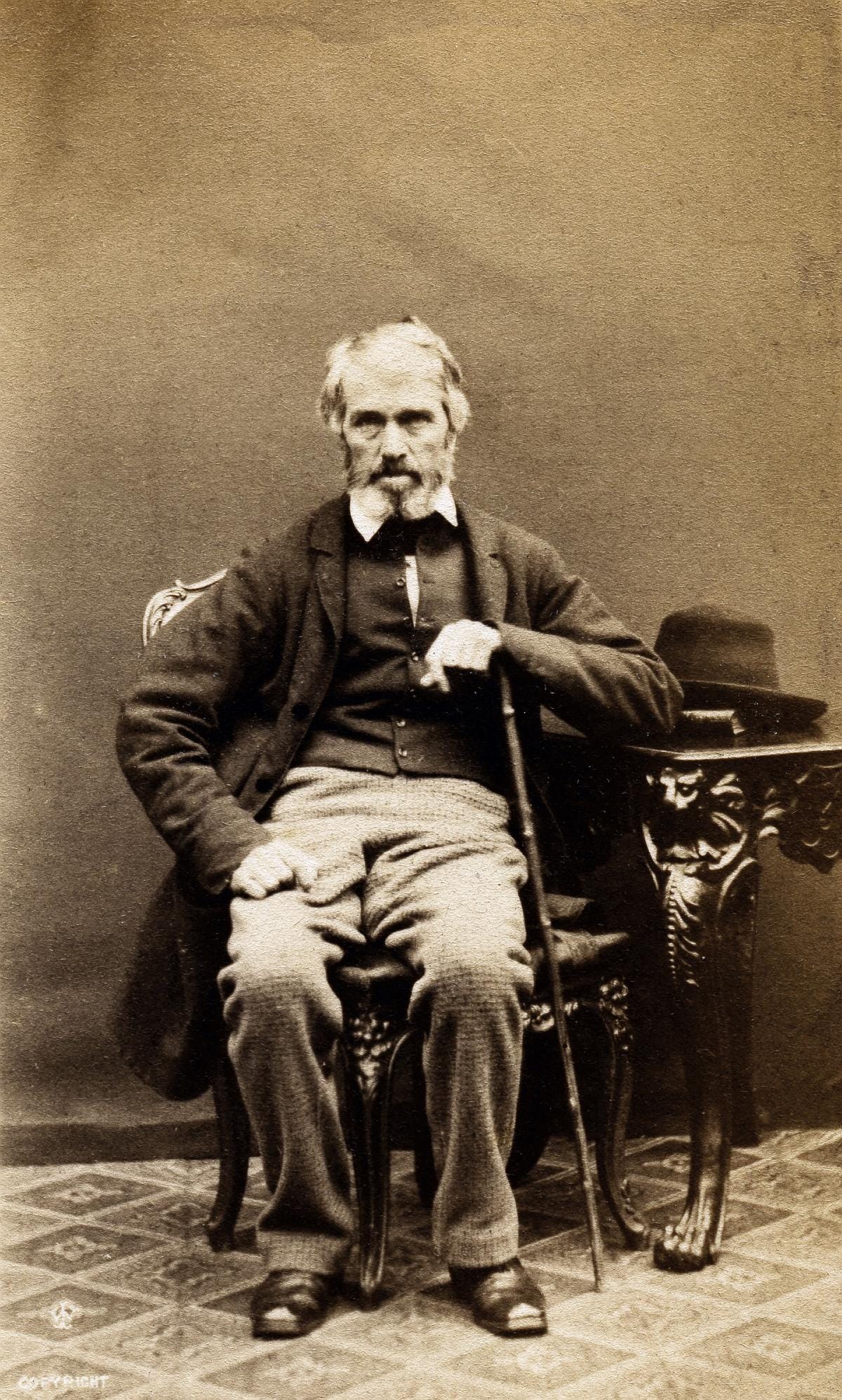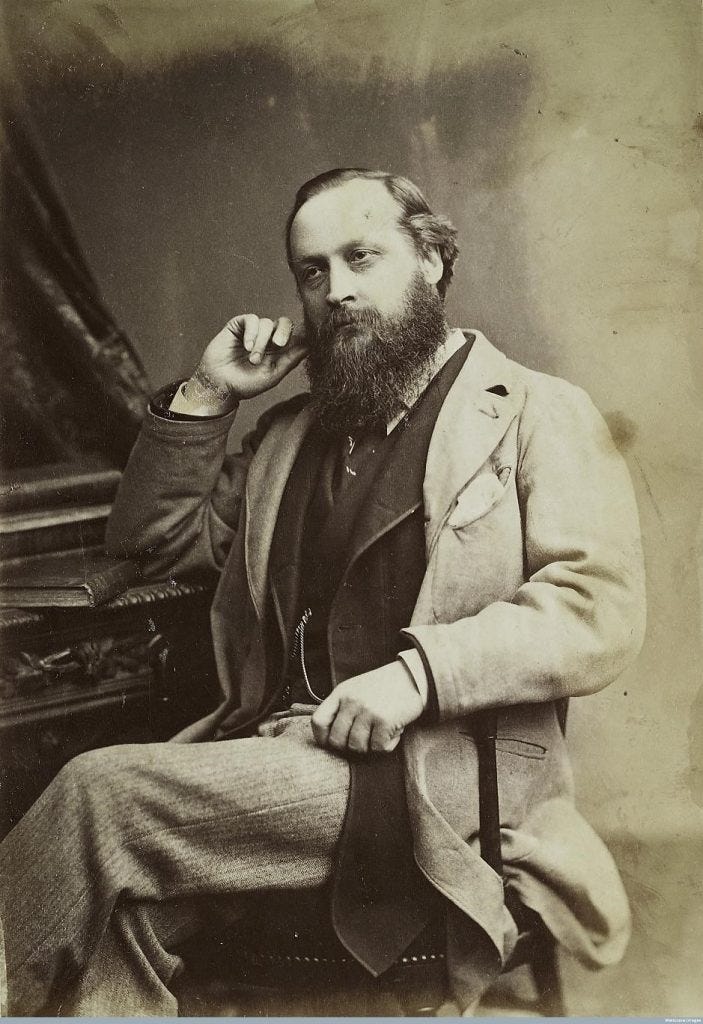A Christian's Habits: Chapter One
How to Reach the Summit
…we are not to be left alone to be molded by nothing, or to be molded by events and circumstances which are more powerful than we. -Robert Speer
Personal Introduction to this Series of Posts
I’m so excited to share a book with you that has guided me, very practically, in taking the next steps of my spiritual journey. It’s one of those rare books, a manual really, that can be both dated and relevant at the same time. It was published in 1911, the same year that the structure of the Atom was discovered, the first feature film was released, and aircraft was used for the first time as an offensive weapon in war. Much has happened in the more than 100 years since it was written. But it continues to be every bit as important now as it was then. Maybe even more so.
If we’re serious about making good happen consistently in our lives, relationships and communities, it is absolutely essential that we build daily habits that support and enhance our commitment. This book is the most practical guide that I‘ve found on the subject. Let me give you a quick introduction before we jump into the first chapter.
It was written by Robert E. Speer, a prodigious Presbyterian leader and author who, among other things, coined the four principles of Alcoholics Anonymous: Purity, Honesty, Unselfishness, and Love. I’ll tell you more about him in future posts, but for now, I wanted you to know that the author was someone who was effective, not only in his own spiritual journey but in helping others on that journey as well.
This post is the first chapter of his book, A Christian’s Habits, now in the public domain. I have included all of Speer’s original text but given its age, I have added section headings and prompts to help us in our reflections. You’ll also find images and links to materials and persons he cites as authoritative but are lesser known in our day. I have found it fascinating to get to know them.
I have found it really helpful to read over this material more than once. I can guarantee, from my own personal experience, that giving time and attention to this content and taking concrete action to implement your insights into your everyday life will help you take the next level in your spiritual journey.
Let us know what part of this chapter stands out to you and how you plan to implement it in your life.
Without further ado, here is chapter one entitled, The Place of Habit.
I.I Life is a School of Habit
Prompt: Make a quick list of your daily habits.
Life is a school of habit. There is a real sense in which our business here is simply the acquisition of habits. We start with certain inherited tendencies and capabilities and these certainly do affect our choices, and the choices grow into our habits; but whatever the bias for good or evil with which we start, we are not bound by it. How often we see a good ancestry shamed in some bad son, and a bad ancestry exalted by some good son! Whatever the bias with which we are born, and the pressure of our surroundings upon us, and however much excuse is to be found in these for the wreck of some lives, it is still true that we order our own ways and that we order them by the character of the habits we choose to acquire.
We begin our work in the school when we begin to live. At once upon beginning to live we begin to act, and each act makes its repetition easier, so that we are more likely to duplicate that act than to perform a new one. No one needs to teach us to form habits. We do it by reason of our nature which, as Carlyle said:
Habit is the deepest law. It is our supreme strength, if also in circumstances, our most miserable weakness. Let me go once scanning my way with any earnestness of outlook, and successfully arriving, my footsteps are an invitation to me a second time to go by the same way. It is easier than any other way. Habit is our perennial law -habit and imitation-there is nothing more perennial than these two. They are the source of all working and all apprenticeship, of all practice and all learning in the world. Thomas Carlyle (1843). “Past and Present”, p.77
I.II By Habit, We Make Headway In Life
Prompt: Which habits are presently working for you?
The law of habit is not a dead mechanical law. It is simply the government of God applying to all life, giving stability and order and firm principle to it. It is the assurance that we can keep the results of our efforts and experience, that there is an end toward which we can move and that we are not to be left alone to be molded by nothing, or to be molded by events and circumstances which are more powerful than we.
“The truth is,” as Edward Bowen, one of the great English schoolmasters wrote in an essay on The Force of Habit, “The truth is not that events mold us, but that we mold ourselves: that is, if with reverence it may be spoken, the Creator supplies the instruments, and we have the work to do. Whether our work be a cheerless, solitary task, a forlorn and unaided toil, or whether in no single action are we destitute of a guidance above ourselves, Plato did not doubt, and we shall not: but that it is in this way that we shape our being, and in everything work toward an end, Scripture and reason prove.”
Habit is God’s assent to the finality and responsibility of our acts. If it were not for habit, we should never have time or strength for any advanced living.
“If an act became no easier after being done several times,” says Dr. Maudsley in The Physiology of the Mind, “if the careful direction of consciousness were necessary to its accomplishment on each occasion, it is evident that the whole activity of a lifetime might be confined to one or two deeds-that no progress could take place in development. A man might be occupied all day in dressing and undressing himself; the attitude of his body would absorb all his attention and energy; the washing of his hands or the fastening of a button would be as difficult to him on each occasion as to the child on its first trial, and he would furthermore be completely exhausted by his exertions.” Dr. Henry Maudsley, The Physiology of Mind
We can make headway upward in our life struggle because each step is secure. We do not need to go back to do it over again with the same effort. We can go on from it easily to another step in the same direction.
I.III Habit: A Two-Edged Blade
Prompt: Which habits are not adding value to your life?
Of course, the law of habit, like every other law, is like a two-edged blade. It cuts both ways. The good that we have done once, we can do more easily the second time. The evil, also, that we have done once we can more easily repeat.
“I know from experience,” says John Foster in his Journal, “…that habit can, in direct opposition to every connection of the mind and but little aided by the element of temptation (such as present pleasures and so forth) induce a repetition of the most untrustworthy action. The mind is weak where it has once given way. It is long before a principle restored can become as firm as one that has never been moved. It is as the use of a mound of a reservoir: if the mound has in one place been broken, whatever care has been taken to make the repaired part as strong as possible, the probability is that if it gives way again it will be in that place.”
The law of habit is meant to be a blessing to us in making us masters, not a curse making us slaves.
I.IV Habits in Our Spiritual Life
Prompt: What spiritual habits would you like to add or improve in your life?
In the religious life, habit is meant to play a great and blessed part.
"In the great majority of things,” says Foster, “habit is a greater plague than ever afflicted Egypt: in religious character it is a grand felicity.”
By it we are set free from many conflicts which we had to wage earnestly at first but in which the habit of victory became so fixed that we are no longer aware of those conflicts. The foes whom we meet are still with us, but we have given them no more thought than we give to the earth we walk on, and without which we could not stand up and walk forward. By habit also, what was at first hard and perplexing has become natural and simple. Surrender to Christ and the subordination of our personal ambition to him, once difficult, is now joyous. The lower has been subjugated by the higher.
"When the missionary desire came in and took full possession of my heart,” says the veteran missionary Griffith John, “the lower desire was driven out and driven out never to return again. That was a great victory, one of the greatest victories ever won on the arena of my soul, and one for which I have never ceased to feel truly thankful to God.” from Griffith John: The Story of Fifty Years In China
And the virtues and activities of the after life are sweet to us in their full sweetness, and secure and trustworthy only when they have become, as they may become, habitual.
I.V We Should Begin At Once
Prompt: How are you going to strengthen your habits today?
We should begin to acquire these habits at once, the earlier the better. If we do not learn to love God in our earliest years, and to trust him and to pray to him, if we do not become familiar with the Bible now, and now acquire a love for purity that will not look upon evil, it may be too late when in after years we turn to these things deciding to make them habitual. While no one need ever despair, it is true, as Professor James says, that habit
“dooms us all to fight out the battle of life upon the lines of our nurture or our early choice, and to make the best of a pursuit that disagrees, because there is no other for which we are fitted, and it is too late to begin again.”
To be the kind of Christian we want someday to be, we must begin to be to-day.
-From A Christian’s Habits by Robert E. Speer, 1911.
Other books that have helped me move forward in my spiritual journey over the last decades can be found here. Let us know in the comments below which ones you find helpful.




